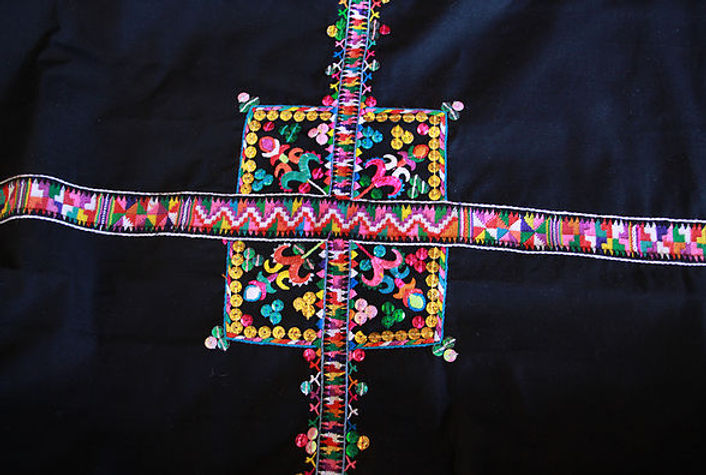
PROJECT WOMEN EMPOWERMENT TREES
(PWET) - SINAZAT
Project Women Empowerment Trees (PWET-Sinazat) is a community-based initiative in the Pitas district in northern Sabah. The region is one of the most impoverished areas in Malaysia, has a low-literacy rate and is riddled with other problems such as unfertile soil. The district and surrounding areas were devastated after intensive logging several decades ago, followed by the planting of Acacia mangium that has led to depletion of water sources, an increase in severity of flooding and failure to provide economic benefits to communities.
The impact of past policies is strongly felt by the indigenous Rungus women and their children. Men and youths have migrated to urban areas, leaving mothers, children and the elderly behind without proper income, resources or education to spur economic growth. Absence of key infrastructure and other development in remote regions of Pitas reinforced the dire economic situation and social exclusion. The women’s already marginalised position was exacerbated by the gradual loss of power and rights over native customary and village land due to the lack of land tenure, contributing to an environment of disempowerment, lack of economic opportunities and isolation.
At the request of the local community, LEAP facilitated a four-way collaboration between women from eight Pitas villages, Partners of Community Organisations (PACOS Trust), LEAP and the Sabah Forestry Department (SFD) with the aim of creating economic opportunities and enriching the local environment. This process resulted in the establishment of PWET, managed and run by local women.
PWET started as a three-year project (2007-2009), and continued beyond that period due to its successes. During the initial three year project period, PWET focused on capacity building, skills training and community tree planting as means to empower women and promote sustainable and economic use of their land. In its first year, PWET elected project leaders and established ten tree nurseries in eight villages, sourced 25,933 seedlings and planted 5,152 trees. In 2008, the project leaders expanded the nurseries and seedling base, planted an additional 20,000 trees in the watershed and on private land, and revived the local tamu (market).
In 2009, PWET increased the number of seedlings planted in order to expand their efforts to improve their local water supply and environment, increase food security, and provide valuable long-term sources of income and livelihood for the villages. These efforts were supplemented by tree planting and nursery management training by SFD, workshops led by PACOS in computer and accounting skills, capacity building and cross-cultural and gender issues, and exposure activities such as visits by project leaders to similar successful projects in Guatemala, Thailand and the United States, as well as projects around Malaysia.
In a span of four years, this project has seen the successful planting and maintenance of over 100,000 indigenous, fruit and rubber trees in watersheds and on community land. During a project review in January 2013, it was decided that watersheds do not require further planting work, an indicator of the project’s success. The goal is to now get restored areas gazetted as a watershed reserve under the Sabah Water Enactment, providing full protection to the community’s watershed.
PWET has provided training in computer literacy, leadership, accounting, gender issues, natural resource management, seedling procurement, tree nursery establishment and watershed restoration activities. Project members have expressed of an overall feeling of accomplishment and personal growth.
While the project has been challenging, significant progress can be seen and PWET remains active. It has helped instill a greater sense of ownership through community volunteerism with locals banding together to manage their natural resources.
With ongoing support from LEAP, the project is undertaking further steps to upscale their microenterprise activities and create a self-sustaining mechanism for the community through sustainable business models such as establishing community cooperatives to carry out various economic-based activities as well as empowerment of local women and men in the village.
The following activities for 2014-2016 are intended to further the goals of empowerment and security:
-
Handicrafts, Weavings and Wood Products Microenterprise Programme to revitalise and expand local traditions;
-
Enrichment and further protection of over 100 acres of watershed that serves the water needs over 1500 people in 8 villages;
-
Community Gardens Programme to increase food production, food security, revenue and nutrition; and reduce dependency on buying food from nearby towns;
-
Capacity Building and Skills Training Programme which aims to register the women as an association so their work and leadership is encouraged and recognised.
For further details, contact neville@leapspiral.org.

